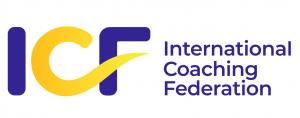The courage to experiment

Success is a function of the number and quality of experiments you run, every year, every month, every day. It is crazy to believe that we can get there only thanks to good analysis and good planning at the first execution, without the learning achieved through the conceptualization that derives from observation and reflection on good experimentation, in oder to better adjust your shot.
Experimenting requires taking risks and also continuous attention and the ability to listen enormously to all stakeholders so to collect relevant data and information that can promote virtuous circles, now more easily accessible thanks to the support of AI.
In corporate daily life, in order to let the risks be “calculated” and monitored by anyone following the execution, at any level and at any stage, it is necessary to build a culture of learning and experimentation which creates the ideal conditions for testing bold ideas and new products, processes and models of business.
Each experiment will offer information and examples from which to glean significant elements to reorient or confirm the directions that are provided to activities, even when they not successful as happens in the majority of cases.
But how can we feel safe in these conditions that are so uncertain and often leading towards the unknown?
Over the past few decades, organizations and people have focused their energy and investment on narrowing the focus and specialization believing they can more confidently achieve success through it. However, the Expert’s Assumption that he can predict exactly how things will go and how they must be achieved, turns out to be contradictory and unsuitable in a BANI context (Brittle, Anxious, Non-Linear, Incomprehensible).
It creates a vicious rather than virtuous circle: experts will tend to take charge of evaluations and decisions, excluding those who do not know as much as they do, treating them as unsuitable, and these in any case will exclude themselves cause not assessing themselves as capable to offer a relevant contribution as they are in fact not experts.
Indeed, expertise alone does not offer all the qualified information essential to progress in complex contexts. Rather, it’s the different heuristics and perspectives that can be drawn from the collective intelligence of heterogeneous teams, competent but not necessarily vertical, and capable of providing that variety of ideas and observations that lead to success in any organizations of our times.
The categories of “right and wrong” will give way to those of “useful and effective” and the word “failure” will be banned, because its assumption is that nothing has been useful; on the other hand, every process and every experiment, even if they do not lead to what we are trying to achieve, offer opportunities to learn and evaluate causes and effects, behaviors and processes, and all that produce the results so that they can be analyzed and interpreted to obtain relevance and knowledge that would not have been accessible otherwise, with the final effect of getting increasingly closer to the reality of the market, testing it regularly.
The fundamental rules to prevent the fear of making mistakes and excessive attention to efficiency and predictability so to avoid paralyzing growth and rather to build a culture of experimentation are:
- educate the team to experiment, always keeping some project open through which to test ideas and processes
- encourage those who carry out experiments and by monitoring them develop learnings that can be exploited and exported to current activities, also sharing them disregarding whether the experiments are successful or not
- in meetings, always create space for sharing how the experiments are going and what learning those who are conducting them have got from them, accompanying the sharing with facilitation aimed at bringing out the most significant ones
- organize opportunities aimed at the development and collection of ideas, oriented towards innovation so to encourage it, trying to ensure that everyone feels called to make a contribution
- demonstrate on every occasion an interest in listening to perspectives and ideas even if they are misaligned with the most adopted positions, trying to integrate them into practices whenever possible to encourage people to share
- develop the ability to ask powerful questions, capable of developing new scenarios, of opening up to further hypotheses and evaluations, of changing perspectives and generating ideas, having the courage to go against the status quo.
We must keep in mind that when it comes to innovation we always find ourselves dealing with something that was thought to be a crazy idea before it reached an important turning point in some process or product.
The gap between failure and success is often covered by staying with the problem a little longer.
One more repetition.
One more step.
One more minute.
One more review.
One more try.
The difference between an average result and an exceptional one is often one more time.
Happy experimenting!





